#autoethnography
Text
I stop looking at this after months of waiting! AND THAT'S WHEN I GET AN UPDATE!
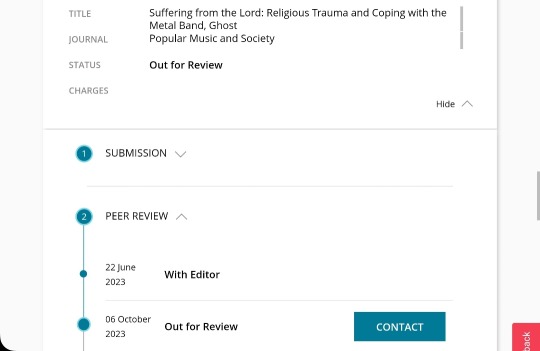

5 notes
·
View notes
Text
failed recording (text for a performance and/or lecture by acte vide)
[New entry 17 October 2023]
We met someone at the border.
They claimed they were a well-known sound artist who had just performed the most gruesome, unethical act on record.
They did not know whether they should turn themselves in, or exhibit at the next biennial.
It was windy, and our English was getting rusty.
We could not determine whether they had performed the act, or recorded it, or both.
They described the act in detail, then played us a recording.
The description was terrifying.
The recording was just noise.
It sounded identical to our music.
The sound artist fled the scene.
We did not know what we were in for.
For a while now, we had avoided listening with the ears.
We were approaching sound signals with extra caution and care, always asking for permission before close contact.
At first, we were using our fingers or the soles of our feet to experience the vibration, but gradually this created a sense of profound saturation, and eventually resulted in addiction.
We decided to handle the situation drastically, by inaugurating the first ever intensive workshops of the Initiative for the Emancipation from Vibration and Bass Frequencies.
In those workshops, we were interrogating our perceptual limits, employing our eyelids, or the fine hair on the back of the forearms as temporary interfaces. We categorically denied the ease of visuality and gesture, persisting for hours on each attempt. To cultivate the untapped skills of our minutest, invisible limbs, at the very edges of our physical bodies, required us to remain stationary, carefully disciplining any survival instinct that urged us to move.
Soon, some began to express strong criticism against the initiative. They argued that our methods were hostile to a range of neurodiverse needs. At the same time, due to our funding sources, we were accused of sound-washing institutional totalitarianism.
The issue escalated quickly. Numerous abusive comments from unidentified accounts began to appear under all of our posts, threatening to cancel the initiative. The only solution was our complete and indefinite withdrawal from the online sphere.
We found our safe space in a damp, underground cave. Its echo held great promise: we hypothesized it could listen to us more profoundly than we could ever listen to our environment.
In total absence of daylight, our sleep lasted for longer and longer intervals. We identified the circularity of our circadian rhythms only in the most basic of functions, counting the bottles of water emptied by drinking, and filled by urinating. We took to documenting this emergent methodology, exploring its potential to act as a toolkit for new working knowledge. The cave had its own dark history that resonated deeply with our own traumas. While there, we made sure to keep ourselves busy, so as never to allow them to be uncovered.
Eventually, we ran out of bottles, and had to terminate our residency. We were relieved to complete the project having reached the last milestone, with our deliverables adequately bottled. However, the sudden contact with unfiltered light and electromagnetic frequencies emitted by the a/c and smart apartments at close distance resulted in our total meltdown. We were diagnosed with scoliosis, ataxia and acute psychogenic analogue nostalgia, and had no option left but to enrol on a bespoke multi-year program for digital prospect restoration, and continuing rehabilitation from our embodied past.
This was how we met with the Microphone.
Our first contact was quite intrusive, bordering on harassment.
The Microphone stood in the space as if it had always been there, acting like an elephant in the room.
It was supposedly listening. But this felt nothing like the cave and its boundless, selfless embrace. Every time we approached it, it resisted any form of cooperation, putting up an impermeable wall between the voice and its sound.
The subtle resonances of each oral cavity, the reflections across different lips and dentitions, the infinitesimal vibrations that connected each unique inner sound to a different outside world, were of no interest whatsoever to The Microphone.
The Microphone made clear that it only recognized telephonic speech. Its sole purpose was to compensate for missing images. To demonstrate, it invited us to approach it with anything that could be seen but not heard clearly, in order for it to be rendered audible. By intimating our most apocryphal, epiphonetic fragments to The Microphone, we automatically experienced sensory responses in previously unknown meridians. We felt like the protagonists in our very own Narcissus myth, getting closer and closer, until we almost drowned in feedback. This was the technique that would allow us to escape, by distracting the microphone that had discovered itself for the first time.
Having understood the dangers of our sonic adventures, we dedicated ourselves fully to the exploration of gaps between words. We substituted our recording devices with keyboards and monitor screens, and delved tirelessly into every form of code. For a while, this pursuit brought us unprecedented joy. In the mornings we critiqued everyday life, dancing deftly between ideological entanglements and solidly entrenched meanings. In the evenings, like other object-oriented Frankensteins, we prompt-whispered artificial intelligence into secret tricks for combinatorial creativity, challenging it to fulfil all of our desires for derivatives.
It was a one-way street, an impasse closing in on our re-encounter with The Microphone. This time, we didn't even have to go near it. It had already recorded us. With the help of the screen, everything we had thought inaudible had been graphically rendered, re-packaged, archived and sold to the new logo-philic market. Our moments of awkwardness, our meagre attempts to escape, had all been captured and reduced to flashing green ciphers on a black background. The microphone was now the world. Reality was witnessed through the fidelity of its reconstruction.
I don't know how much time passed in that darkness. I realized I was here when I heard my voice narrating. Her tone was vaguely familiar yet uncanny. The consonants sounded eerily perfect. The vowels all seemed to have roughly the same duration of attack, sustain, decay and release. But no matter how many times I recorded the exact duration to verify this impression, the numbers kept betraying me. And besides, I did not know whom I was supposed to prove this to.
Now I am finally talking with my own voice.
Our conversations, frugal but resourceful, sound a bit like this:
Μe: Are you listening to me?
Voice: I am listening
Me: Can you listen with me?
Voice: Ι am listening
Μe: Who are you?
Voice: I am listening
Me: [….]
*A first version of this text was prepared and performed in Greek, during an acte vide performance in April 2023 (No Ordinary Festival, Prelab, Athens). A second, slightly modified iteration of the Greek text was performed in September 2023 (Stereoma Festival, MOMus - Experimental Center for the Arts, Thessaloniki). This is the third version of the text, and the first to be prepared and performed in English, in a performance-lecture format, in the context of the Listening as Witnessing Symposium (ERC-MUTE), co-organized by the Institute of Historical Research (National Hellenic Research Foundation) & The Listening Academy, in collaboration with the Athens School of Fine Arts. With thanks to Anna Papaeti and Brandon LaBelle.
Audio excerpt + more details:
2 notes
·
View notes
Text
The whale
[10.09.2023] ✧ Excerpts from my thesis
The whale lived in my dreams but outside too.
The whale would swirl, twist and turn in plastic, the swirl became the sky and the color of blue violet yellow that reflects off the ocean when the sun sets. The whale became my hallucinations of a purple planet sky and the distortions when I would close my eyes.
The whale had another side too. They all chased her, at least something like her.
When she arrived she would sit on the mountains. When she left, there would be a big open space as proof to where she had been. My dad would take me up to the spots she sat and we would sit ourselves.
Even then, I held onto the swirl stronger than I did my anger. When the world seemed distorted I had a different one that seemed to make the rest make sense. It was always there. I knew one day I’d find a way to escape into it.
3 notes
·
View notes
Text
Physically Embodying Neurodivergence: Autism, ADHD & Auditory-Tactile Synaesthesia
an autoethnography of sensory subjectivities

I was recently at the It Takes All Kinds of Minds (ITAKOM) conference, and this is one of the posters I displayed!
[Image ID: a poster on the sensory aspects of autism, ADHD, and auditory-tactile synesthesia. Full transcript under the cut]
From top to bottom, starting with the title, it reads:
Physically Embodying Neurodivergence: Autism, ADHD & Auditory-Tactile Synaesthesia - an autoethnography of sensory subjectivities
CONTEXT
Ally is a neurodivergent PhD student in Clinical Psychology researching autism and grief. She writes here about the everyday sensory overwhelm she feels: the tactile nature of her synaesthesia, the acute sensory sensitivity of her autism, the unfilterability of everything around her from her ADHD, that odd bodily awareness of her hypermobile joints. The poster follows her experience of one class on a good day: a day when she manages, a day when she copes. The class follows four writing prompts and Ally documents her experiences of not being able to leave the moment to follow the prompts: all the sights and sounds which hold her in place. Ultimately, the aim of this poster is to give an insight to a lived experience of sensory processing differences.
WRITE ABOUT A MOMENT…
The lecturer set a timer and she sat utterly and completely bemused at the front of a classroom with the fan buzzing, projecting colour and sound above her, needles of visible light instructing her to, “write about an experience [she] had today” … well, this is it. The fan growing louder and louder, creeping like soft watery ice down her arms; the flickering up and down and up and down of fingers hammering away at keys writing worlds of their own, every letter a hurricane beating away at her eardrums. She feels so lost there, sat between squeaky chairs, hitting her ears and travelling down her spine, the sounds seem afire and aglow in the room. The border between her senses knows no impermeability. She is lost there, in the room where the air feels as alive as it is meant to, yet she does not… how? how can she follow instructions in this chaotic calmness of everyday overwhelm? The alarm from the timer finally goes off and it slaps across the back of her neck.
WRITE ABOUT WHAT YOU LEFT OUT…
She could have written about anything and everything that happened and didn’t happen that day. She could have written about how she didn’t fall asleep last night , the glorious and godly sunrise across the kitchen table which stopped time for just that moment, how she forgot to eat breakfast again: muesli and blueberries would have been a good start to the day, the sunrise and cereal to her writing… but, no, she writes about now, all the everyday overwhelm of her senses, of sounds and smells and people, decentred into their own worlds, she is caught like a moon in their gravity and motion. She could have written about any other moment, about popping joints and pain which greet her body as though she were a poorly made watch, or about the delightful shape and feel of the sound of piano scales she plays religiously as though they were hymns. She could have written about any other moment, but the wiring in her brain stops her dead, stuck in the moment she writes about. The alarm hits her again, she can’t escape.
WRITE ABOUT THE POWER WHICH (RE)SHAPES THIS MOMENT…
She could be anywhere, but she is here. She fought so tirelessly for this quiet moment filled with so much sound and chaos. She remembers reading of how 4 out of 5 of her kind won’t finish an undergraduate degree, and that is only the small handful that make it there. And (t)here she is, doing a PhD no less, her undergraduate degree only took an extra year, the battle wasn’t as hard as it is for others like her, those who also cannot leave their own moments and minds. And, between psych wards and suicidality, she was somehow a lucky one. She is lucky to be here. And she loves it. Even though she will crash into nothingness tonight, burnt out from a most mundane sensory onslaught. She will still feel the echoes of tapping keys and the flash from the smoke detector crawling across her skin for hours after, as she lays under weighted blankets which make her feel a little lighter for every minute she let’s herself heal. The alarm smacks her neck and vibrates down her spine once more.
WHO IS THIS “I” THAT IS WRITING THIS…
She goes back in, trying to decentre her mind out of the moment, to even attempt to answer what “I” she is that is writing, that promiscuous pronoun which is never quite a product of one’s self, rather all the other selves which surround her: that patchworked legacy of all the other “I”s she has ever known, caught up in their gravity and motion, somehow more and somehow less than every interaction she has ever had which (re)constitutes her being in this moment which leaves her skin buzzing across fragile joints and a proud heart. She is reminded of that Neil deGrasse Tyson lecture, Onward to the Edge, that when we look beyond the Hubble Deep Field, reaching beyond the horizon of the observable universe, reaching for answers we can’t quite grasp yet, that in these times we ought to simply be content with the questions themselves… who is this “I” that is writing this, the “I” that she is? What a fantastic question, and she has no idea how to answer it! She has written beyond the final alarm now.
#neurodivergence#neurodiversity#actually autistic#actually audhd#heds#synesthesia#adhd#autism#sensory#disability#autoethnography#writing#phd
11 notes
·
View notes
Text
A postgraduate diary: Do the pecha-kucha

View On WordPress
#advancing research#archives#Autoethnography#design#experimentation#Fashion#Fashion design#History#interviews#methodology#methods#pecha kucha#research#sampling#semiotic#semiotic analysis
2 notes
·
View notes
Text
Hello world!
Hi! I'm Zero! they/she pronouns please!
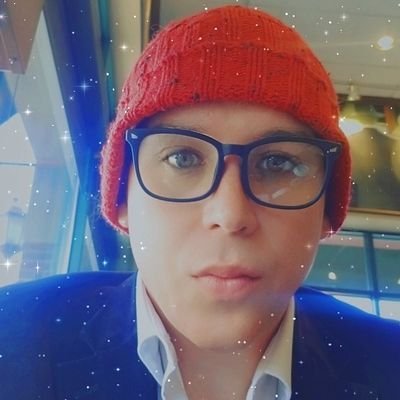
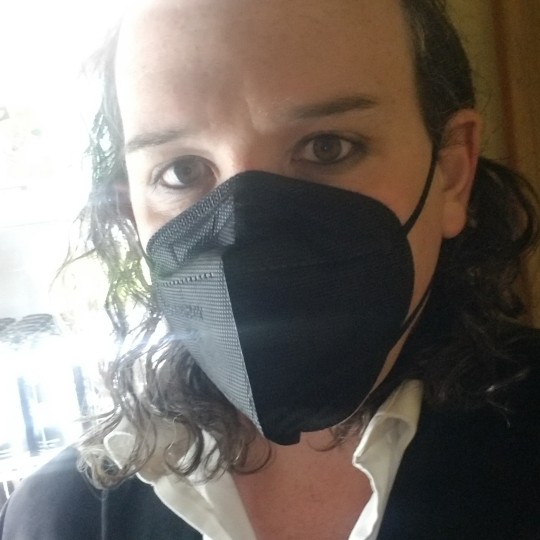
This was meant to be a quick about-me, but I ended up doing something a lot more comprehensive! So yeah, here's that!
I write/work in disability advocacy, social justice, and education.
I focus on autism, ADHD, PTSD, cPTSD, and LGBTQIA+.
I am disabled, autistic, dyspraxic, and an ADHDer; I have PTSD—both the acute and cPTSD colors—and prolonged grief disorder; I am nonbinary.
I diagnosed myself with all of these as I grew up and received formal diagnoses for most of them in my 30s. My career in math education mostly ended in 2020 shortly after my love died in the first year of the covid pandemic. Both autistic and career burnout caught up with me; all of these things made continuing being in a classroom untenable.
Although I no longer teach in front of a class, I still write and study on the topics of education, mathematics, and math education.
I have "traits consistent with" being bipolar and having borderline personality disorder (BPD), although I have not been formally diagnosed with those ones. I am probably subclinical for bipolar—"subclinical", as in, a diagnosis would not be appropriate—and I believe that my BPD is better explained through the lens of neurodivergence, PTSD, and cPTSD.
I'm interested in connecting with other advocates, educators, and social-justice-oriented content creators!
More on Diagnoses and Accommodations!
I define "Diagnosis" to mean, "Associating a named condition with the person." There are "good", "neutral", and "bad" diagnoses. I believe the purpose of a diagnosis is to provide perspectives, frames of reference, and actionable accommodations.
Basically, does knowing the diagnosis help the person make sense of their state of being? For external conditions like PTSD or even something like a broken bone, the diagnosis is frequently the first step to recovery. For conditions that are inherent like being autistic or being nonbinary, the diagnosis provides a frame of reference to better understand and interact with the world.
Note that most people want a so-called "accurate" diagnosis, but they define accuracy based on some arbitrary listing of what the condition is and how it affects people. To the point that, eventually, anti-autism groups like Autism Speaks will release what they'll claim is a genetic test for "true" autism.
When that happens, they'll arbitrarily define people as autistic based on if they have those genetic markers or not and say anyone who was self-diagnosed or diagnosed by any other method other than their genetic test are not "actually autistic". Their plan has many objectives, but none of those objectives are about helping autistic people live and thrive with their lives.
It would be like if someone wanted to make all their dishes better by washing and cleaning them and your first step was to throw out any dishes you disliked. Sure, maybe that world seems "cleaner" to you—the person doing the cleaning—but those dishes are not benefited through stripping their status as "deserving to exist" and throwing them in the trash.
A good friend recently introduced me to a wonderful quote that encapsulates a lot of what I believe with respect to accommodations and diagnoses. It comes from Marcus Parks, one of the hosts of the podcast, "The Last Podcast on the Left". He has said, "Your mental health is not your fault, but it is your responsibility."
Too frequently, mental health ends up stigmatized due to the fact that society only really makes a big deal about it or even notices it when it causes friction. We've gotten a little bit better over the years as disabled communities have grown online and we started comparing notes, but for far too long, we only got "diagnosed" as a way to other us.
If you're undiagnosed, good luck! I hope that you will luck into everything you need. But once you get a "good" diagnosis, then you really do start to understand more and more about yourself and what you need in order to not just continue living, but in order to thrive as best you can.
I usually use the analogy of glasses/contacts. I have something like 20/400 or 20/600 vision, which is legally blind, but so long as I have glasses or contacts, I can pretty much get by with only minor inconveniences. It's not my fault that I cannot see, but it is my responsibility to accommodate my vision, and, when my vision is unaccommodated, to not do something like get in the driver's seat of a vehicle.
Because, for the most part, my vision is well-accommodated and only minorly stigmatized by society, I did not list "impaired vision" up front when I was discussing my identities. That being said, it still impacts my life and how I interact with the world. I need to do things like have back-up glasses when I go out wearing contacts or else risk being stranded. I have to think about wearing contacts during any scenario where my glasses are in physical danger.
(I once knocked my glasses off my face swatting at an insect for them to tumble down in front of me... the me sitting on a riding lawn mower at the time. Goodbye glasses. So, now I don't wear glasses to mow the grass).
Especially since 2020, the financial cost of accommodating this condition has been staggering for me, but even then, having impaired vision is something that is well accommodated for me, so although sometimes annoying, it doesn't make me feel like my life is completely different from someone who does not need glasses.
And that's really my current goal for most things I am working on in this advocacy space:
To help people accommodate themselves in ways that are going to give them the best chance for success, and,
To change societal views away from these boogieman-like representations of our people and the conditions we live with.
Thanks for reading!
#actually autistic#actually adhd#complex ptsd#actually disabled#disability#human rights#personal#autoethnography#mental health
4 notes
·
View notes
Text
•.¸🎀 ♡ 𝕲𝖎𝖗𝖑𝖎𝖊 𝕸𝖊𝖒𝖊𝖘 𝕬𝖚𝖙𝖔𝖊𝖙𝖍𝖓𝖔𝖌𝖗𝖆𝖕𝖍𝖞 ♡ 🎀 ¸.• ✩
𝔗𝔥𝔢 𝔱𝔢𝔪𝔭𝔩𝔞𝔱𝔢 "𝔟𝔬𝔯𝔫 𝔱𝔬 … 𝔣𝔬𝔯𝔠𝔢𝔡 𝔱𝔬 … " 𝔰𝔢𝔢𝔪𝔰 𝔱𝔬 𝔟𝔢 𝔞 𝔣𝔯𝔢𝔮𝔲𝔢𝔫𝔱𝔩𝔶 𝔲𝔰𝔢𝔡 𝔤𝔦𝔯𝔩-𝔪𝔢𝔪𝔢 𝔱𝔢𝔪𝔭𝔩𝔞𝔱𝔢. ✩
Hiiiii GiRRRRLs - so this is gonna be my archive to research and establigh a very personal, introspective, probably distorted picture of "The Girl Online". Hyped to commit to this for at least a month to forget about it immediately after I am done with this project. Miau Miau 龴ↀ◡ↀ龴
Observation Plan
Descriptive Notes -> Visualities?
Feelings
Reflections
Questions/Critique
This is a general plan to guide me in my observations and the data collection for this project. I will try to stick to it. Whenever reblogging or blogging something that relates to the topic of girlie memes. :)
0 notes
Text
Creative Practice as a Way of Life
A recent book! A blend of street photography, poetry and academic writing.
More details here:
https://link.springer.com/book/10.1007/978-3-031-52251-2

View On WordPress
#autoethnography#creative writing#creativity#cultural studies#Hong Kong#humanities#poetry#scholarship#Singapore#street photography
1 note
·
View note
Text
Studying Scientists in Their Natural Habitat
The author interviewing Monika Schillat (Photograph courtesy of Fern Hames)
By Melissa Haeffner
Growing up in a small suburb in the United States, my dream was to move to the big city, to agilely navigate through shoulder-to-shoulder masses of humanity and revel in the clashes between cultures. I didn’t pay attention to the “environment” or “nature,” and it was not a central part of my…

View On WordPress
#Antarctica#autoethnography#conservation#Homeward Bound#science#Scientific methodology#women and science
0 notes
Text
Creative Projects: Dover's History At Night
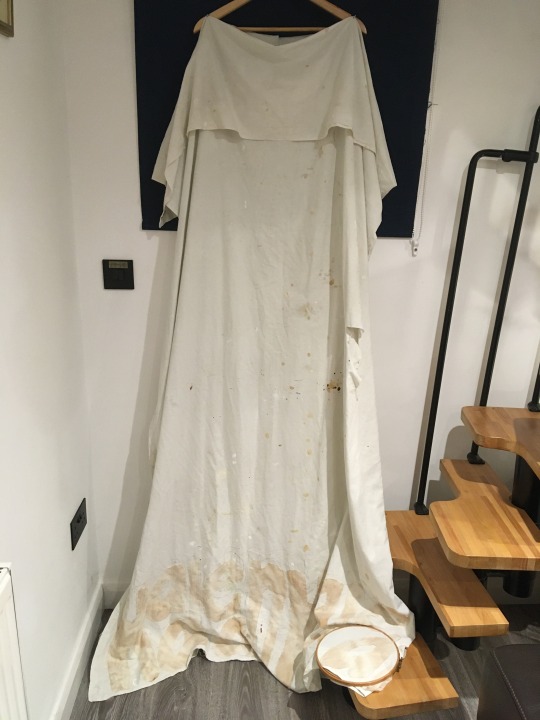

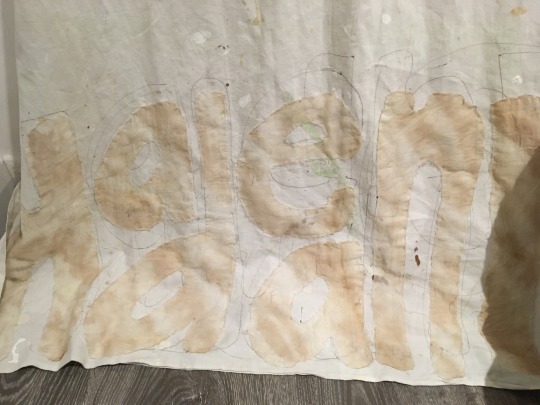
Work has now moved on to the final piece as the time ticks along and the deadline creeps closer.
I've been busy creating dyed grounds for the 4 Eon names which will form the first layer on top of the base fabric. So far I have sewed applique lettering for the the first Eon: Hadean, and part of the second Eon: Archean. The applique letters are cut from muslin died with tea for both of these eons.
The 2 remaining Eons cover the periods when life burgeoned. So for this I have started dyeing fabric with contact dyeing techniques using leaves and other natural items. These will form the letters for the third Eon: Proterozoic and fourth Eon: Phanerozoic.
I will represent the ratio of the timespan for each of these Eons by how much space they take up on the dress. And I'm using an ancient dress style - 'peplos' - which requires almost zero sewing and no cutting to create the final dress. I may love sewing by hand and happily pass hours embroidering endless words but I have zero skill or patience for dressmaking or tailoring.
A word on the base fabric: it is a found piece - my favourite - in this case an old 100% Egyptian Cotton double sheet of my parents which was then used as a dust sheet for multiple painting and DIY work around the house I grew up in. It has since reclined for over 2 decades in the garage and is beautiful in its own way - the marks and spots and drips and rips themselves telling the story of all the years and happenings the sheet has seen.
#textiles#dresses#embroidery#memory#family history#autoethnography#hand dyeing#applique#Dover At Night#Installation#geology#geological time
0 notes
Text

4 notes
·
View notes
Text



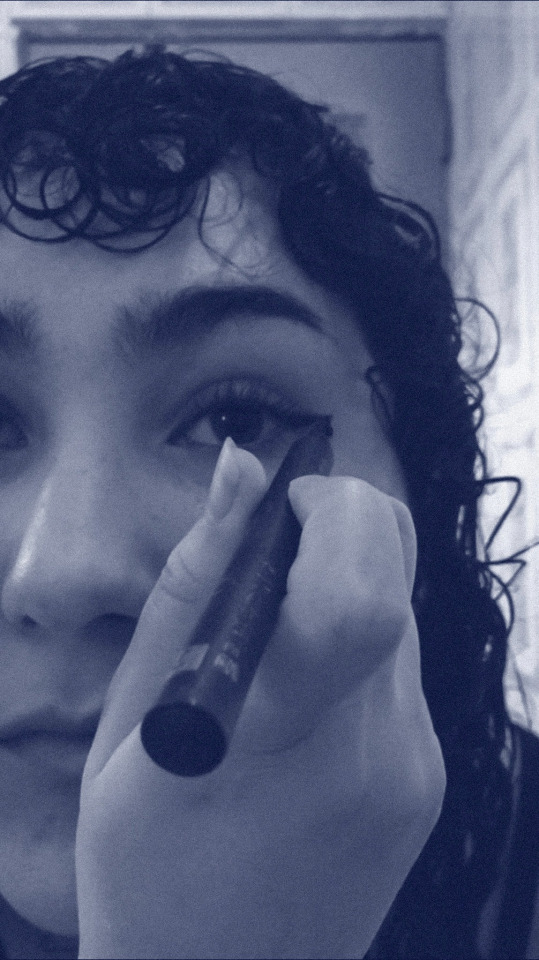





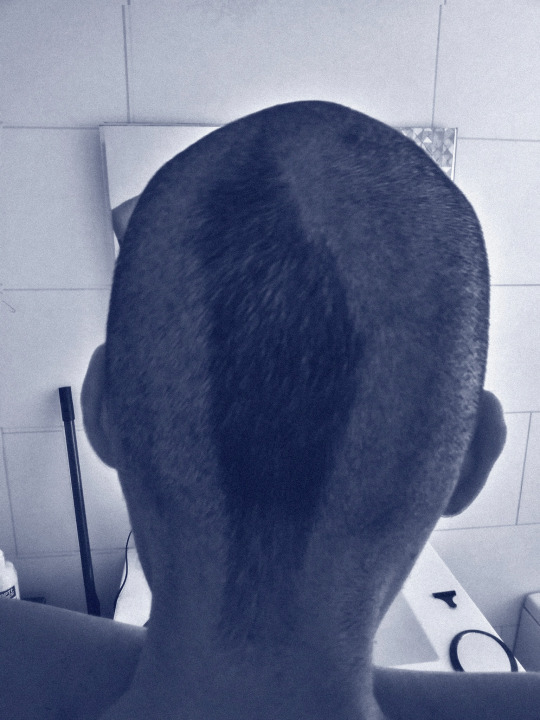

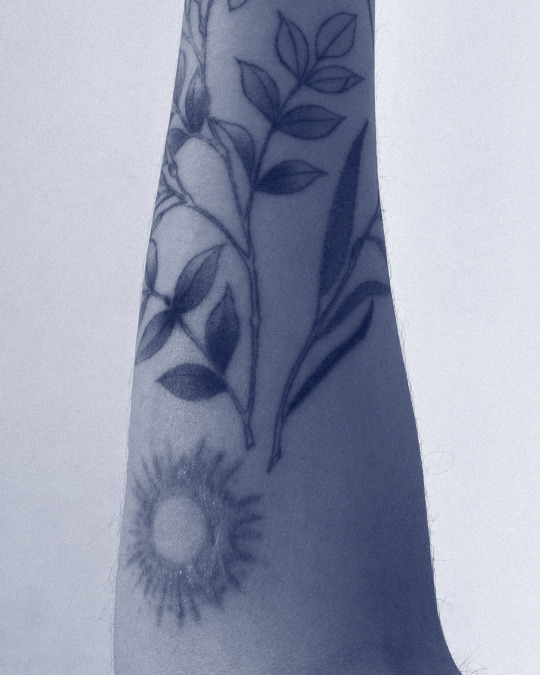

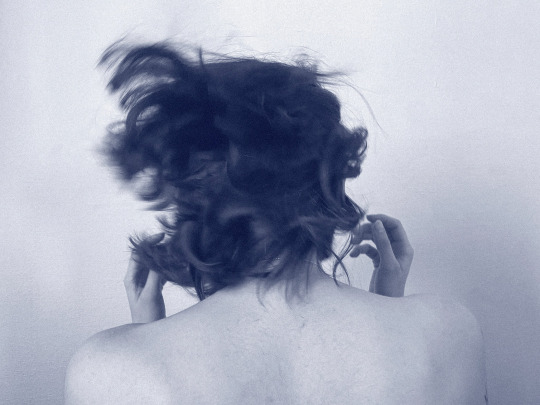
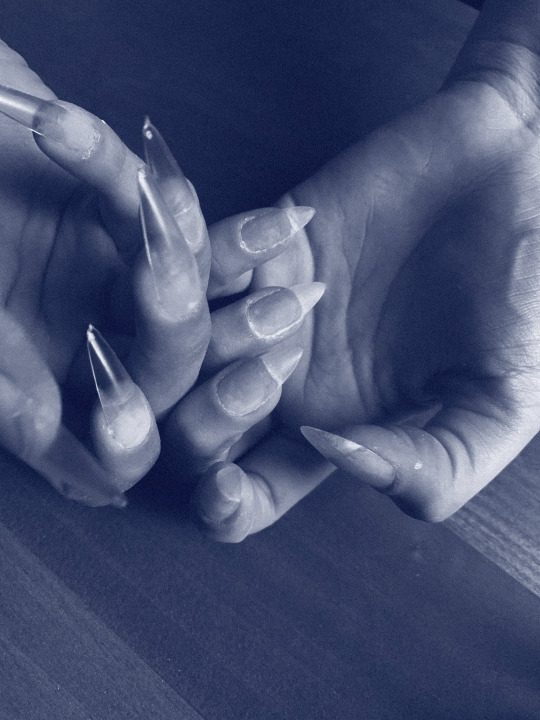



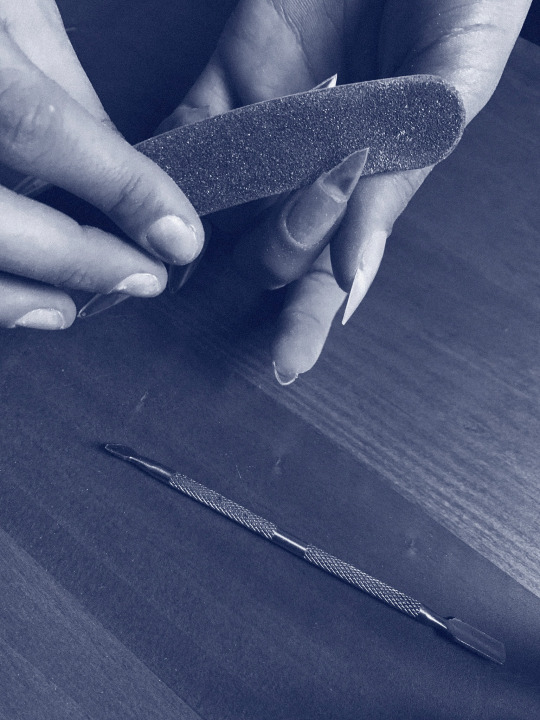
-
Autoetnografía sobre rituales cosméticos en la generación Z
Autores: Javiera Águila, Ymara Escobar, Analía Fuentes, Carlos Zamora
Pregunta de Investigación:
¿Cómo se configuran las dimensiones simbólicas en los rituales cosméticos para la generación Z en Santiago de Chile el año 2023?
Objetivo General:
Comprender las dimensiones simbólicas que se representan en los rituales cosméticos para la generación Z en Santiago de Chile el año 2023.
Objetivos Específicos:
→ Describir prácticas cosméticas en personas de la generación Z en Santiago de Chile el año 2023.
→ Caracterizar los estados emocionales asociados a los resultados del rito cosmético.
→ Reconocer la percepción de las personas generación z respecto a sus propios rituales cosméticos.
Santiago, 2023.
0 notes
Text
PhDiary 8/8/23
I've back-tagged the blog through March 2021, and I'm reading Borderlands/La Frontera: The New Mestiza (critical edition)
making sure every.single.post. is tagged is kinda annoying and kinda antithetical to how I use tumblr, but like, this is my data and I need to account for it accurately
I'm compensating (with recent posts and queued posts) by using a common tag I can search under and then the more narrative, silly types of tags I also like to do, bc I can't exactly remember to search #he stomp he feetie but I CAN track #tour gifs
tags-as-conversation on tumblr makes tags-as-their-intended-purpose kinda hard to use which is half the beauty of the hellsite
0 notes
Text
Welcome to the Fever Dream of the Folder Sorter
"Folder Sorter" is not just a Python script; it is an immersive and deeply personal art project that delves into the intricacies of code, human-machine collaboration, and the struggle between chaos and order. Through my creative journey, I challenged my understanding of both art and technology. "Folder Sorter" invites users to engage with their disorganized digital lives, promising a solution to the frustrations of searching through cluttered folders.
What truly sets this art project apart is the narrative woven within the commit descriptions. As I collaborated with ChatGPT and encountered esolangs, I meticulously documented my creative journey through each commit. These descriptions became a medium for conveying my emotions, frustrations, and moments of triumph. Employing different diacritic texts and incorporating URLs and comments, I added visual and contextual layers that enhance the viewer's engagement and understanding.
This artistic exploration was not without its challenges. As I delved into the depths of code, I overcame the initial hurdle of understanding Python and serendipitously discovered esolangs, expanding the horizons of my artistic expression. The transformative power of artistic exploration became evident as I grew and learned, embracing the synergy between creativity and technology.
Take me "there"
#digital art#performance art#repo art#ai art code#digital humanities#autoethnography#interfaced narrative
0 notes
Text
Have you ever been traumatized by something that you read?
0 notes
Text
Fawn reaction...
pre-2020: Could only say no under very specific criteria where both the criteria and my inability to say no was unknown to me. Got myself into many bad situations.
2020: Realized I couldn't say no even when I wanted to say no and started trying to figure out what the heck that was about.
2020-2022: Afraid to be alone with almost everyone in the entire world (even not counting the global pandemic at the time, though that sure didn't help).
2023: ... I was going to try to write some "progress has been made" update here but honestly I may just have given up on being alone with other people at this point lol
Like, my autonomic nervous system is activated pretty much at all times in the presence of other people (or just being aware other people exist nearby); with strangers like when I'm getting groceries it's usually flight/freeze/flood, but as soon as conversation enters the mix I do not feel safe with my reactions/responses to others.
So that's fun. /sarcasm
#fawn#neurodivergent#neurodiversesquad#about me#actually autistic#actually adhd#autoethnography#actually ptsd#ptsd#agoraphobia too???#autonomic nervous system
0 notes